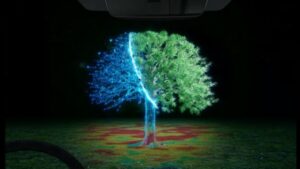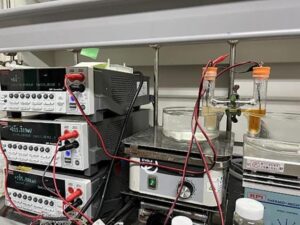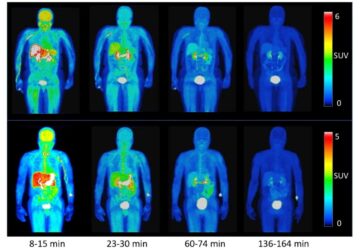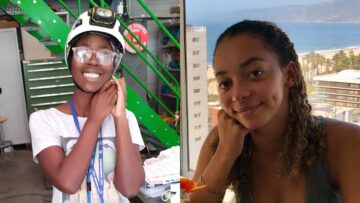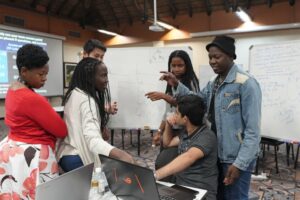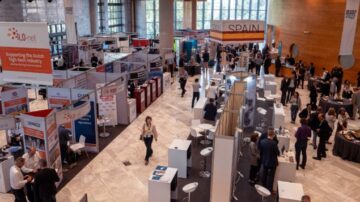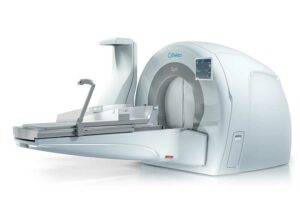The optical physicist Margaret Murnane has won the 2022 Isaac Newton Medal and Prize for “for pioneering and sustained contributions to the development of ultrafast lasers and coherent X-ray sources and the use of such sources to understand the quantum nature of materials”. Presented by the Institute of Physics (IOP), which publishes Physics World, the international award is given annually for “world-leading contributions to physics”.
Born in 1959 in County Limerick, Ireland, Murnane obtained a Master’s degree in physics from University College, Cork, in 1983. She then moved to the US to carry out a PhD in laser physics at the Univeristy of California at Berkeley, which she completed in 1989. Murnane remained in the US, working first at Washington State Univeristy and then in 1996 at the Univeristy of Michigan, Ann Arbor. In 1999, Murnane moved to the Univeristy of Colorado at Boulder, where she has remained since.
It had been thought it would be too difficult to create an X-ray laser given that the power requirement would be over a billion times that of a visible laser. Yet Murnane and colleagues’ work, which has spanned over three decades, overturned this belief as they managed to create and then shrink down high-intensity X-ray lasers so that they can now fit on tabletops, making them more accessible and affordable.
Murnane and colleagues began this effort at Washington State in the early 1990s, where they created a device that was based on titanium-doped sapphire laser that could generate pulses lasting less than 10 femtoseconds. They then worked on the amplification of these pulses to produce a peak power of about a terawatt.
Murnane – together with her partner Henry Kapteyn – then began to shift the wavelength towards X-rays. They used a process called “high-order harmonic generation” in which a noble gas is used to convert a femtosecond laser pulse into ultraviolet wavelengths. In 2012 Murnane then managed to produce X-ray light from a tabletop laser.
The techniques Murnane and colleagues have developed over the decades have had many applications such as in medical imaging and for industrial use. Indeed, Murnane and Kapteyn co-founded a spin-off laser company, KMLabs.
Murnane told Physics World it is a “great honour” to receive the prize for her work in laser physics. “l am surprised, humble and grateful at the news,” added Murnane. “Through physics, I have made so many wonderful friends, met my life partner, and worked with amazing students and collaborators from all over the world.”
A positive impact
Murnane’s honour formed part of the IOP’s wider 2022 awards, which recognize everyone from early-career scientists and teachers to technicians and subject specialists.
Other winners include science writer, broadcaster and regular Physics World contributor Sharon Ann Holgate who receives the William Thomson, Lord Kelvin Medal and Prize for “communicating science to a wide variety of audiences and for positive representations of scientists from non-traditional backgrounds”.
“This award means a great deal to me,” Holgate told Physics World. “Due to my physical disability, I have faced many obstacles in my career and I hope that the award can encourage other people, no matter what their background is or what challenges they face, to pursue a career in science.”
Imperial College PhD student Amy Smith, meanwhile, receives the Jocelyn Bell Burnell Medal and Prize for “exceptional contributions to physics education and efforts to reducing barriers to progression and increasing sense of belonging amongst underrepresented groups”.

Quantum physicist David Deutsch bags Isaac Newton Medal and Prize
“I am incredibly honoured to have received this award,” says Smith. “It is wonderful that the IOP and the wider community are recognising physics educators and physics education researchers as being fundamental to the advancement of physics.”
In a statement, IOP president Sheila Rowan congratulated all the winners. “Each and every one of them has made a significant and positive impact in their profession, whether as a researcher, teacher, industrialist, technician or apprentice.”
The full list of 2022 award winners is available here.


